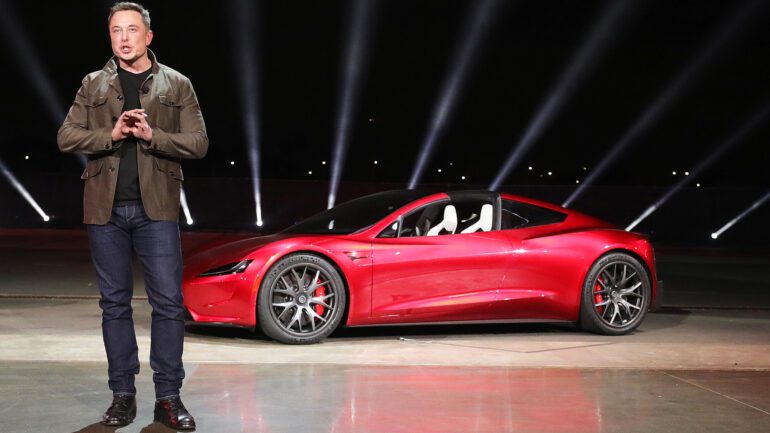TL;DR:
- Elon Musk expresses the desire for 25% voting control in Tesla to lead AI initiatives.
- He clarifies the absence of new incentive plans due to an ongoing $55 billion lawsuit.
- Musk envisions Tesla as a conglomerate of innovative startups, highlighting projects like the Optimus robot.
- Tesla invested over $1 billion in the Dojo supercomputer project, expected to add $500 billion in value.
- Musk’s goal is to establish Tesla as a leader in real-world AI, but with safeguards against takeovers.
- He considers a dual-class voting structure but acknowledges the challenges in achieving it.
- Tesla’s shares have faced a 12% decline in value in the current year.
- Shareholder concerns range from succession planning to Musk’s involvement with X (formerly Twitter).
- Tesla confronts challenges like Hertz’s EV strategy shift, price cuts in China, and rising labor costs.
- The identity of Tesla, as an auto manufacturer, energy firm, or AI company, remains a topic of debate.
Main AI News:
Elon Musk, the visionary behind Tesla Inc., has laid out his bold ambitions to further control the company’s destiny in the AI arena. Musk’s determination to attain a 25% voting stake underscores his unwavering commitment to shaping the future of the world’s most valuable electric vehicle manufacturer.
With a substantial 12% ownership stake in Tesla, Musk took to social media to respond to queries regarding his need for additional compensation incentives. He clarified that the absence of a new incentive plan is attributed to an ongoing shareholder lawsuit contesting a historic $55 billion compensation package, an unprecedented sum when initially proposed.
Musk elaborated on the idea that Tesla is not just a traditional automaker but rather a conglomerate of numerous startup ventures. Drawing parallels between Tesla and General Motors Corp., a traditional titan in the automotive industry, he highlighted Tesla’s groundbreaking projects, such as the Optimus robot. Tesla recently showcased significant enhancements to its humanoid prototype through a captivating video presentation.
Beyond robotics, Tesla is making substantial investments, surpassing $1 billion, in its Dojo supercomputer project. This project is set to revolutionize machine learning, underpinning the development of Tesla’s self-driving systems. Analysts speculate that this endeavor alone could contribute an astonishing $500 billion to Tesla’s market value.
In Tesla’s inaugural AI Day held in 2021, Musk emphatically declared his intent to demonstrate that the company is more than just an electric vehicle manufacturer; it is a dominant force in real-world AI. Musk’s ambitions, however, come with a caveat: “I am uncomfortable growing Tesla to be a leader in AI & robotics without having ~25% voting control,” he posted on X. “If I have 25%, it means I am influential, but can be overridden if twice as many shareholders vote against me vs for me. At 15% or lower, the for/against ratio to override me makes a takeover by dubious interests too easy.“
Musk expressed openness to the idea of a dual-class voting structure to facilitate this level of control but acknowledged that it may be unattainable post-IPO in Delaware.
Despite Tesla’s remarkable growth in 2023, where its stock price more than doubled, the company’s shares have experienced a 12% decline this year, erasing over $94 billion in market capitalization. Elon Musk, currently the world’s wealthiest individual, is grappling with shareholder discontent, encompassing concerns ranging from Tesla’s succession planning to allegations of distraction due to his involvement with X, the platform formerly known as Twitter, which he acquired for $44 billion in 2022 and financed through the sale of billions of dollars in Tesla stock.
Tesla has also encountered a series of challenges, including a surprising shift in electric vehicle strategy by Hertz Global Holdings Inc., price reductions in China, and indications of escalating labor expenses.
The question persists: What is Tesla today? Is it primarily an automobile manufacturer, an energy company, or an AI powerhouse? Daniel Kollar, head of consultancy Intralink’s automotive and mobility practice, commented, “If it’s not an AI company, then I don’t see an issue with establishing a new company. That said, I don’t see his behavior or choice of language benefiting any of his companies now.”
Conclusion:
Elon Musk’s determination to gain greater control over Tesla and his vision for AI leadership underscore the company’s ambition to transcend traditional boundaries. While facing market challenges and shareholder concerns, Tesla’s ongoing pursuit of innovation positions it as a formidable player in the evolving landscape of AI-driven technologies and electric vehicles.

